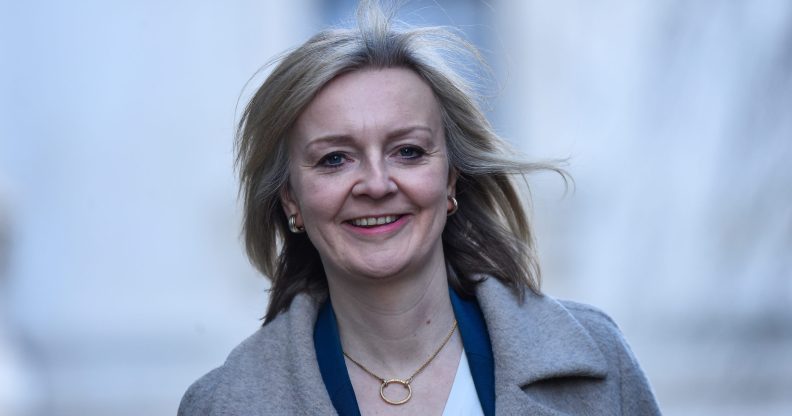Equalities minister Liz Truss wants to turn away from the ‘fashionable’ issues of race, sexuality and gender

Liz Truss, Secretary of State for International Trade and Minister for Women and Equalities, arrives at Downing Street on February 11, 2020. (Getty/ Peter Summers)
Women and equalities minister Liz Truss wants to pivot away from “fashionable” issues of race, sexuality and gender issues.
According to The Telegraph, Truss is expected to announce a policy overhaul at the Centre for Policy Studies think tank on Thursday (17 December) in a speech titled “The New Fight for Fairness”.
She will insist that “identity politics, loud lobby groups and the idea of lived experience” have dominated the conversation about creating a more equal UK.
Truss will also slam unconscious bias training, diversity statements, quotas and targets as “tools of the left” that “do nothing to fix systems”, and insist that the country must not “waste time on misguided, wrong-headed and ultimately destructive ideas that take agency away from people”.
Her new focus will reportedly be on “Conservative values”, based on “freedom, choice, opportunity, and individual humanity and dignity”, rather than “the narrow focus on protected characteristics” in the Equality Act 2010.
Truss believes that a focus on these protected characteristics, which include sexual orientation, “gender reassignment”, sex, disability, race and religion or belief, has led to the conversation overlooking geographic and socio-economic inequality. The debate, she will say, must be “led by facts… not by fashion”.
She thinks that too much attention has been given to groups like Black Lives Matter, and that the equalities debate has been overtaken by “a small group of self-selecting activists”.
A government source told The Telegraph: “The point is that fashionable causes may be good causes, but it leads to other people and real issues being ignored and neglected.”
Liz Truss is set to announce a new equalities data project to figure out where in the UK the most disadvantaged communities are based.
Despite her dismissal of “fashionable” equalities issues, she will reportedly say she remains committed to continuing work on racial and ethnic equality, LGBT+ rights, the national strategy for disabled people and women’s economic empowerment.

